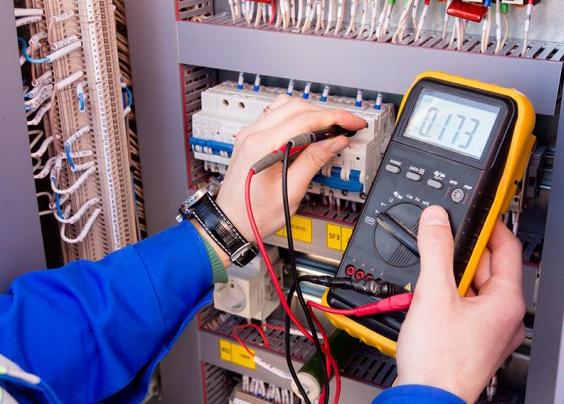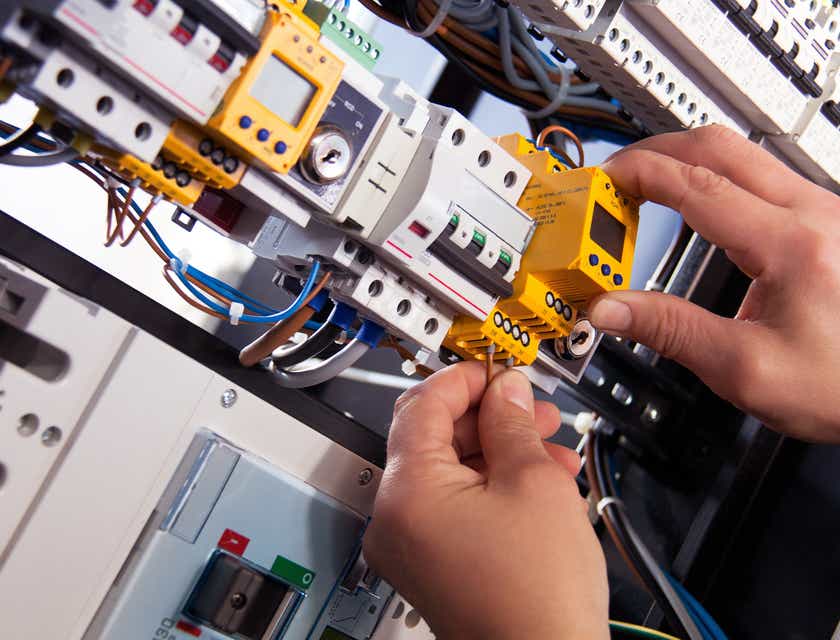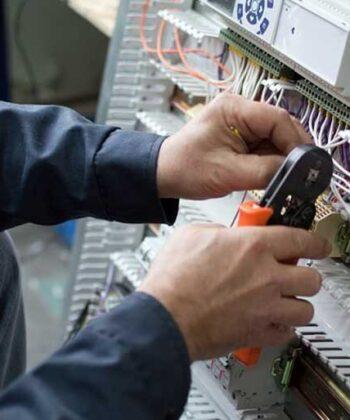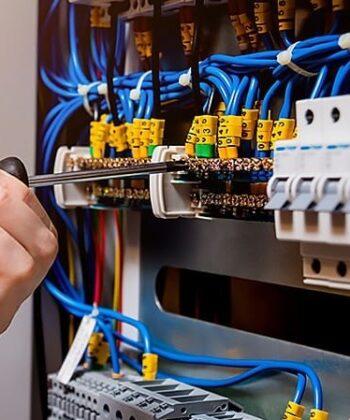See Our Electrical Projects




- Power Distribution: Electrical systems are responsible for distributing electricity throughout residential, commercial, and industrial buildings, ensuring a reliable power supply to various outlets, fixtures, and appliances.
- Wiring and Circuitry: Electrical systems consist of a network of wiring and circuitry that safely carries electrical current from the power source to different areas and devices within a building.
- Safety Considerations: Electrical systems require adherence to safety standards and regulations to prevent electrical shocks, fires, and other hazards. Proper grounding, circuit protection, and insulation are crucial for maintaining electrical safety.
- Lighting: Electrical systems provide lighting solutions, enabling the installation and operation of various types of lighting fixtures, including overhead lights, task lights, accent lights, and outdoor lighting.
- Power Outlets and Switches: Electrical systems include power outlets, switches, and dimmers that allow for the control and connection of electrical devices and appliances.
- Electrical Panel and Breakers: The electrical panel, also known as the distribution board or breaker box, houses circuit breakers that protect the electrical system from overload, short circuits, and electrical faults.
- Energy Efficiency: Electrical systems can incorporate energy-efficient components and technologies, such as LED lighting, smart thermostats, and energy management systems, to reduce energy consumption and lower utility costs.
- Electrical Repairs and Maintenance: Electrical systems require regular inspections, maintenance, and repairs to ensure their proper functioning, prevent malfunctions, and address any potential safety issues.
- Electrical Upgrades and Renovations: Electrical professionals can perform upgrades and renovations to meet increased electrical demands, accommodate new appliances, or improve the overall efficiency and safety of the electrical system.
- Electrical Codes and Compliance: Electrical installations must adhere to local electrical codes and regulations to ensure safety, proper functioning, and compliance with legal requirements.
- Electrical Troubleshooting: Electricians are skilled in diagnosing and troubleshooting electrical issues, identifying faults, and providing effective solutions to restore electrical functionality.
- Electrical Design and Planning: Electrical systems require careful design and planning during construction or remodelling projects to ensure adequate power supply, lighting, and overall functionality based on the building’s specific needs.
Electrical systems are essential for powering buildings and
providing the necessary infrastructure for lighting, appliances, and various
electrical devices. Safety, efficiency, and compliance with regulations are
vital considerations in electrical installations and maintenance.